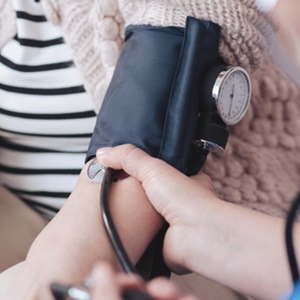
People with HIV are more likely than people without the virus to have high blood pressure, in part because of treatments and repercussions of the condition itself, a new study by Wits scientists and peers has revealed.
According to Statistics South Africa, 12.6% of the population, which is 7.06 million people were HIV positive in the middle of 2017. South Africa also has the largest HIV epidemic in the world, according to UNAIDS, with 19% of the global number of people living with HIV, 15% of new infections and 11% of Aids related deaths. As people with HIV are living longer, new problems arise such as hypertension.
Learning more about the underlying mechanisms of high blood pressure in people with HIV is critical in preventing one of the leading conditions that can cause premature cardiovascular disease in those adults, the researchers said.
The importance of this research
"I think that we really need to pay special attention to this population," said Dr Sasha Fahme, the study's lead author and a global health research fellow at Weill Cornell Medical College in New York City. "Now that people with HIV are living longer, we are seeing the non-infectious consequences of HIV, and hypertension is one of them."
In the Weill Cornell Medicine-led research review, published May 18 in the American Heart Association journal Hypertension, Dr Fahme and her colleagues included 24 medical articles published between 2005 and 2017 that looked at high blood pressure among adults with HIV and those who didn't have the virus.
The analysis centred on vascular inflammation, intestinal problems, high cholesterol, HIV-related kidney disease and other conditions present with HIV that appear to be strongly linked to high blood pressure. Because their immune system is constantly active, people with HIV have chronic inflammation in their arteries, which may make them stiff and enlarged, said Dr Fahme. Studies also suggest HIV-related high cholesterol may lead to high blood pressure. In turn, the researchers in the new study say lipid disorders in people with HIV may be linked to low levels of hormones that regulate blood sugar and break down fat. The different kinds of cholesterol and other fats in the blood are called lipids.
Dr Lance Okeke, an infectious disease doctor who treats HIV patients in Durham, North Carolina, said the new study is a comprehensive review and an important addition to the existing literature because it aims to understand why people with the virus have risk factors for heart disease and stroke.
What does this research mean for future treatment?
The results are "hopeful because we actually do have relatively blunt but effective tools for treating chronic inflammation and immune activation," he said. Dr Okeke was the lead author of a recent study that found the rate of new high blood pressure diagnoses in people with HIV increased between 1996 and 2013.
To successfully stave off heart disease and stroke in patients with HIV, Dr Okeke's study said it was important for doctors to diagnose HIV early and to aggressively treat high blood pressure and other conditions that may lead to cardiovascular disease.
Image credit: iStock




 Publications
Publications
 Partners
Partners










